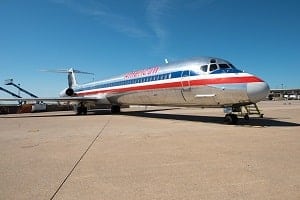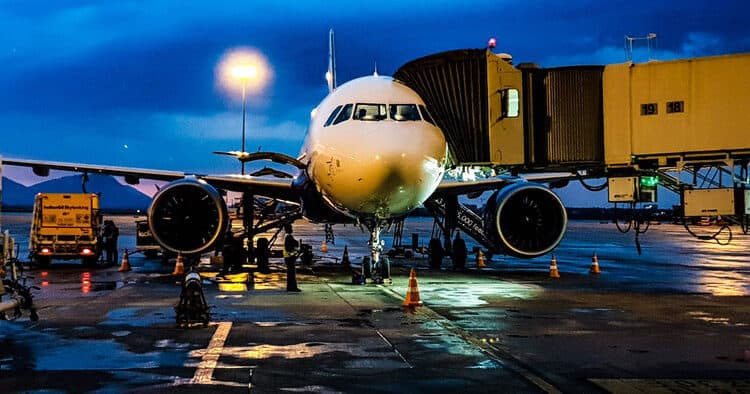Several major airlines have recently banned emotional support animals from flying in the cabin area under the guise of service dogs, after years of complaints from passengers and disability advocates. According to the U.S. Department of Transportation, or DOT, the rule for traveling with service animals was amended to change the definition of service animals to be in line with the Americans With Disabilities Act’s definition of service animals.
Effective January 11, 2021, the DOT amended the Department’s Air Carrier Access Act to define service animals as the Americans with Disabilities Act (ADA) does. This amendment allows airlines to define emotional support animals (ESAs) as pets, instead of service animals.
The ADA defines service animals as “dogs, regardless of breed or type, that are individually trained to do work or perform tasks for people with disabilities,” which include sensory, psychiatric, and neurological illnesses. Furthermore, the definition does not include “dogs whose sole function is to provide comfort or emotional support.”
Seven airlines – United, Delta, Alaska, American, Frontier, Spirit, and JetBlue – have adopted the new definition of service animals and no longer allow emotional support animals on board their flights.

Photo courtesy: American Airlines Facebook Page
All airlines except American have already implemented the new ruling. Starting February 1, American Airlines will no longer allow emotional support animals as well.
“Our team is motivated by a purpose to care for people on life’s journey, and we believe these policy changes will improve our ability to do just that,” said Jessica Tyler, President of Cargo and Vice President of Airport Excellence for American Airlines. “We’re confident this approach will enable us to better serve our customers, particularly those with disabilities who travel with service animals, and better protect our team members at the airport and on the aircraft.”
The new DOT ruling also states airlines can require service animals to be harnessed, leashed, or tethered, and the user of the service dog can be charged for damages caused by the service dog. The final ruling also lets airlines require proper documentation from the DOT, which attests to the animal’s behavior and training, as well as a certification of good health. Any flight longer than eight hours may also require additional documentation to assure that the service animal will not relieve himself or can do so in a sanitary manner.
“This final rule is intended to ensure that our air transportation system is safe for the traveling public and accessible to individuals with disabilities,” stated the DOT in the final ruling.
The DOT also amended the final ruling to cap the number of service animals per person to two, in order to cut down on the number of animals that fly on a regular basis. According to Airlines for America, the year 2020 saw more than a million passengers with ESAs on flights, and an 80 percent increase since the year 2016. Since then there has been an 80 percent increase in incidents aboard flights in connection to ESAs. About 80 organizations support the DOTs new ruling.
The U.S. DOT lists five main reasons why the new ruling has been filed:
- Increasing numbers of complaints from those with disabilities, or those speaking on behalf of
- Inconsistent definition of service animals
- Inconvenience of accommodating unusual species of animals
- Increasing numbers of people fraudulently representing pets as service animals
- Increasing reports of misbehaving emotional support animals

Photo courtesy: Delta Airlines Facebook Page
Delta Airlines agrees with the move to change the definition and requirements.
“Delta’s updated policy follows a nearly 85 percent increase in animal incidents since 2016, including urination, defecation and biting,” said David Garrison – S.V.P. Corporate Safety and Security. “Our top priority is the health, safety and comfort of Delta customers and our people. We strongly believe this policy change will enhance the overall travel experience for everyone.”
As a win for bully-dog advocates, Delta will lift the ban on pitbull-type dogs as long as they have proper documentation, which will now be required in accordance with the new final ruling from the DOT.
Another major airline, Southwest, one of the world’s largest airlines, may be next, according to Forbes. Southwest’s current policy allows emotional support animals with updated documentation from a licensed mental health professional, but the company states it will update its policies in the near future. Unlike the strict definition of a service animal being a dog, Southwest allows other animals, such as cats and miniature horses, to be considered service animals.
What is the definition of an emotional support animal, if he is not considered a service animal? The American Kennel Club (AKC), defines emotional support animals as animals who are prescribed by mental health professionals, under the law, for individuals that are diagnosed with mental health issues, such as depression, anxiety, and phobias. The physical presence of the animal must be needed for good mental health.
The main difference between a service animal and an emotional support animal is the training. Service dogs are trained for a specific task, while emotional support animals only need to be present. ESA advocates are petitioning the DOT to reverse its decision, stating ESAs should be considered alongside service dogs, so long as they have proper documentation.
Featured image photo courtesy: Pexels







